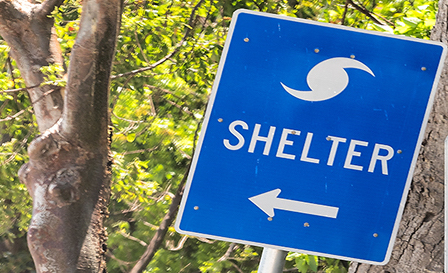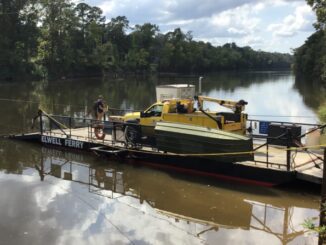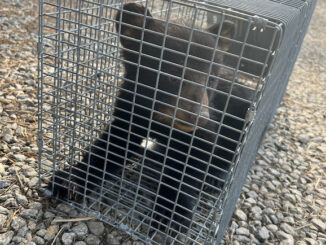
Although neither of the tropical systems currently churning in the Atlantic pose a threat to North Carolina, emergency officials are encouraging planning ahead will help make enduring and recovering from a hurricane much easier, should we get a storm here.
Hurricane Gonzalo is south of the Leeward Islands, and maximum sustained winds have increased to near 50 miles per hour with higher gusts. Additional strengthening is forecast during the next couple of days, and Gonzalo is expected to become a hurricane by Thursday. On its current track, however, Gonzalo is expected to pass into an area of the Caribbean Atlantic that is not favorable to tropical storms. A tropical depression in the Gulf of Mexico is not expected to reach hurricane strength before it collapse later this week.
The last two major events to hit our area, Florence and Matthew, were bad enough without the concerns of the pandemic. Officials are working to determine exactly how to handle problems such as social distancing and sanitizing surfaces if a storm hits this fall.
The Centers for Disease Control (CDC) offers the following advice if you and your family must evacuate to a shelter.
- • Practice social distancing. Stay at least six feet from other people outside of your household.
- Follow CDC COVID-19 preventive actions—wash your hands often, cover coughs and sneezes, and follow shelter policies for wearing cloth face coverings. Avoid sharing food and drink with anyone if possible.
- Follow disaster shelter policies and procedures designed to protect everyone in the shelter, especially those who are at higher risk for severe illness from COVID-19, including older adults and people of any age who have serious underlying medical conditions.
- Avoid touching high-touch surfaces, such as handrails, as much as possible. Wash hands with soap and water for at least 20 seconds or use hand sanitizers with at least 60% alcohol immediately after you touch these surfaces.
- Keep your living area in the shelter clean and disinfect frequently-touched items such as toys, cellphones, and other electronics.
- If you feel sick when you arrive at the shelter or start to feel sick while sheltering, tell shelter staff immediately.
You can find more on caring for your own health before, during and after a hurricane at
https://www.cdc.gov/cpr/prepareyourhealth/PersonalNeeds.htm
Due in part to the COVID-19 pandemic, officials are now encouraging that each family be prepared for seven days without assistance, r other than the traditional three. A list of resources for family emergency kits can be found at https://www.ncdps.gov/blog/2019/01/24/resolve-be-prepared-2019
Most emergency shelters do not allow pets, and those that do generally require a kennel, leash, food and medicines. For more on how to care for your pet during an emergency, go to https://www.ready.gov/pets
Livestock safety is a major issue for farmers, since farm buildings that provide protection from heat, cold and rain are often not suitable for high winds. For more on protecting and preparing your livestock, go to http://go.ncsu.edu/readext?414388 for an article on farm preparedness.
Hurricane season runs until Dec. 1.















